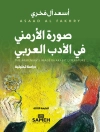This groundbreaking book is about what ‘popular culture’ means in France, and how the term’s shifting meanings have been negotiated and contested. It represents the first theoretically informed study of the way that popular culture is lived, imagined, fought over and negotiated in modern and contemporary France.
It covers a wide range of overarching concerns: the roles of state policy, the market, political ideologies, changing social contexts and new technologies in the construction of the popular. But it also provides a set of specific case studies showing how popular songs, stories, films, TV programmes and language styles have become indispensable elements of ‘culture’ in France. Deploying yet also rethinking a ‘Cultural Studies’ approach to the popular, the book therefore challenges dominant views of what French culture really means today.
Mục lục
Acknowledgements
Notes on Contributors
Introduction
Diana Holmes and David Looseley
1. Politics and Pleasure: Inventing Popular Culture in Contemporary France
David Looseley
2. Authenticity and Appropriation: A Discursive History of French Popular Music
David Looseley
3. The Mimetic Prejudice: the Popular Novel in France
Diana Holmes
4. Why Popular Films are Popular : Identification, Imitation and Critical Mortification
David Platten
5. French Television: Negotiating the National Popular
Lucy Mazdon
6. Social and Linguistic Change in French: Does Popular Culture Mean Popular Language?
Nigel Armstrong
Conclusion
Diana Holmes and David Looseley
Bibliography
Index
Giới thiệu về tác giả
Diana Holmes is Professor of French at the University of Leeds












